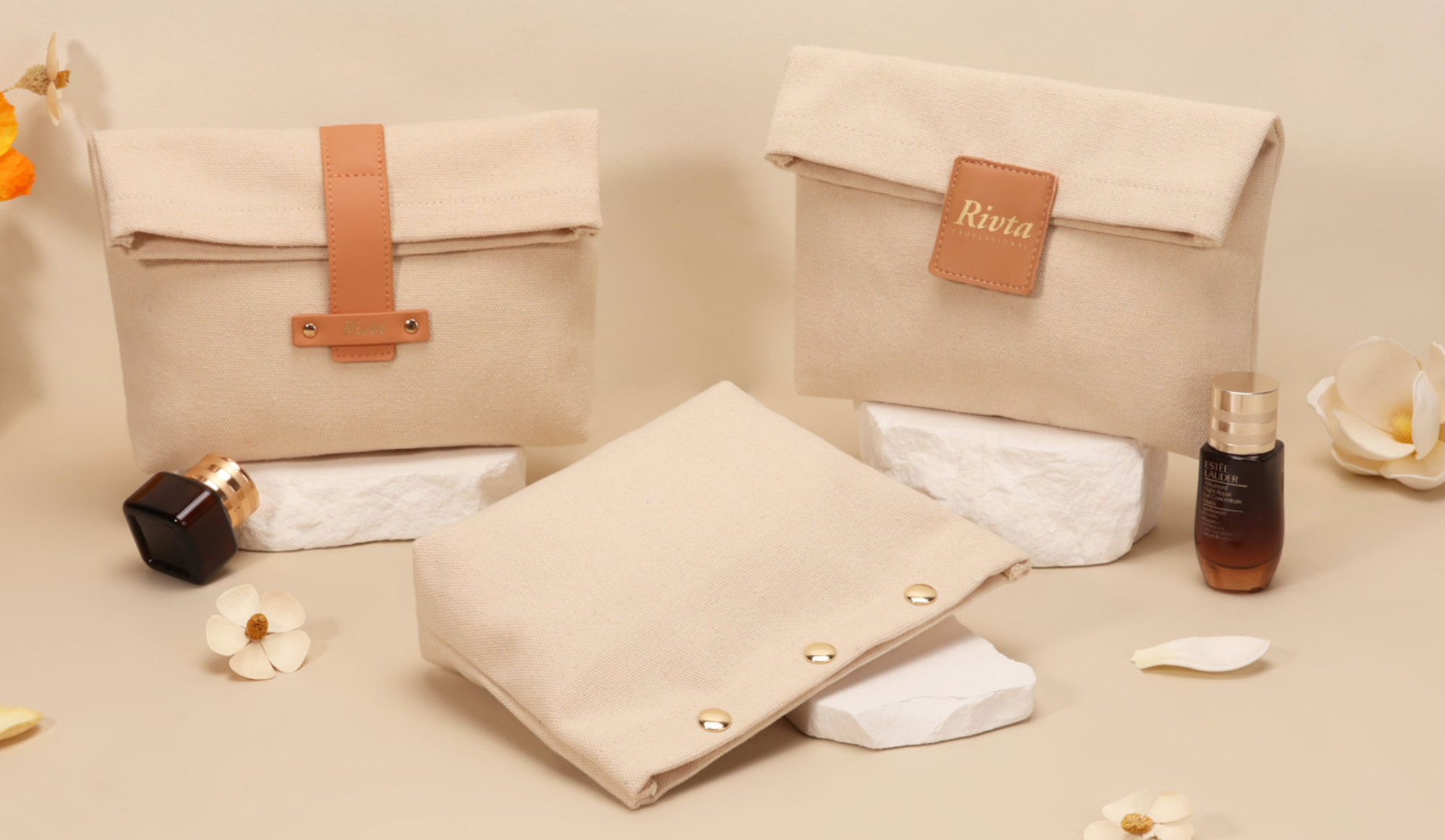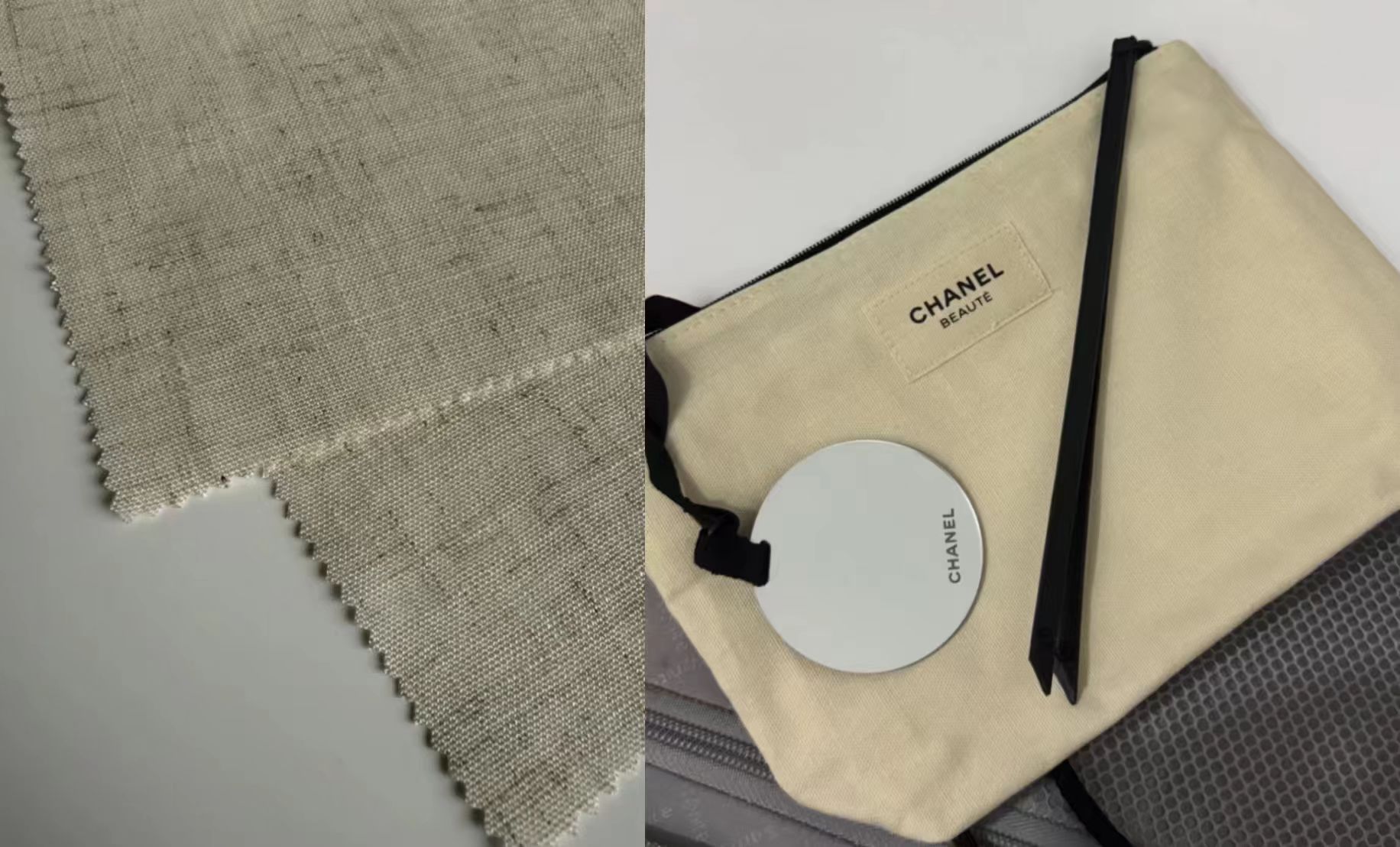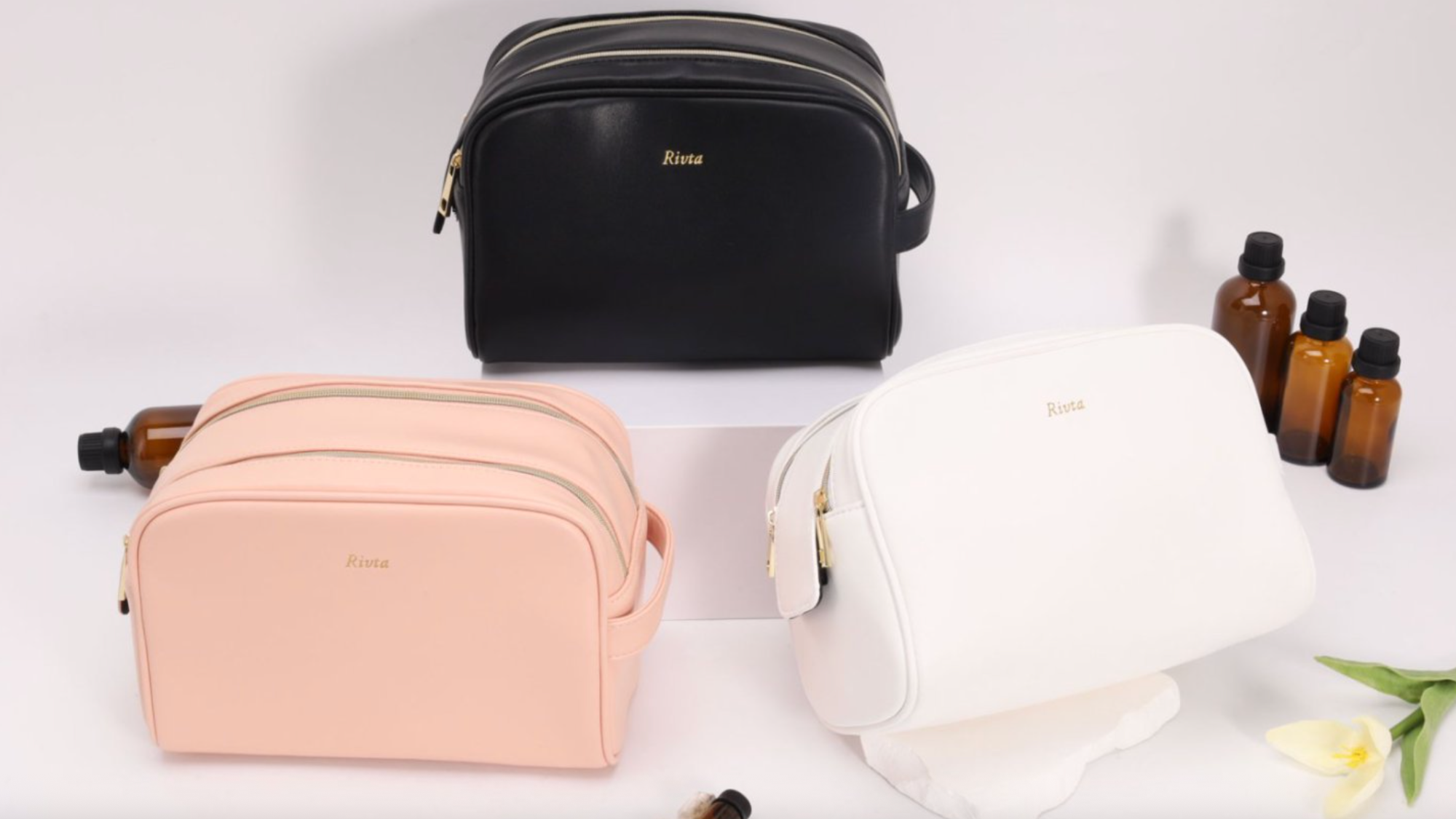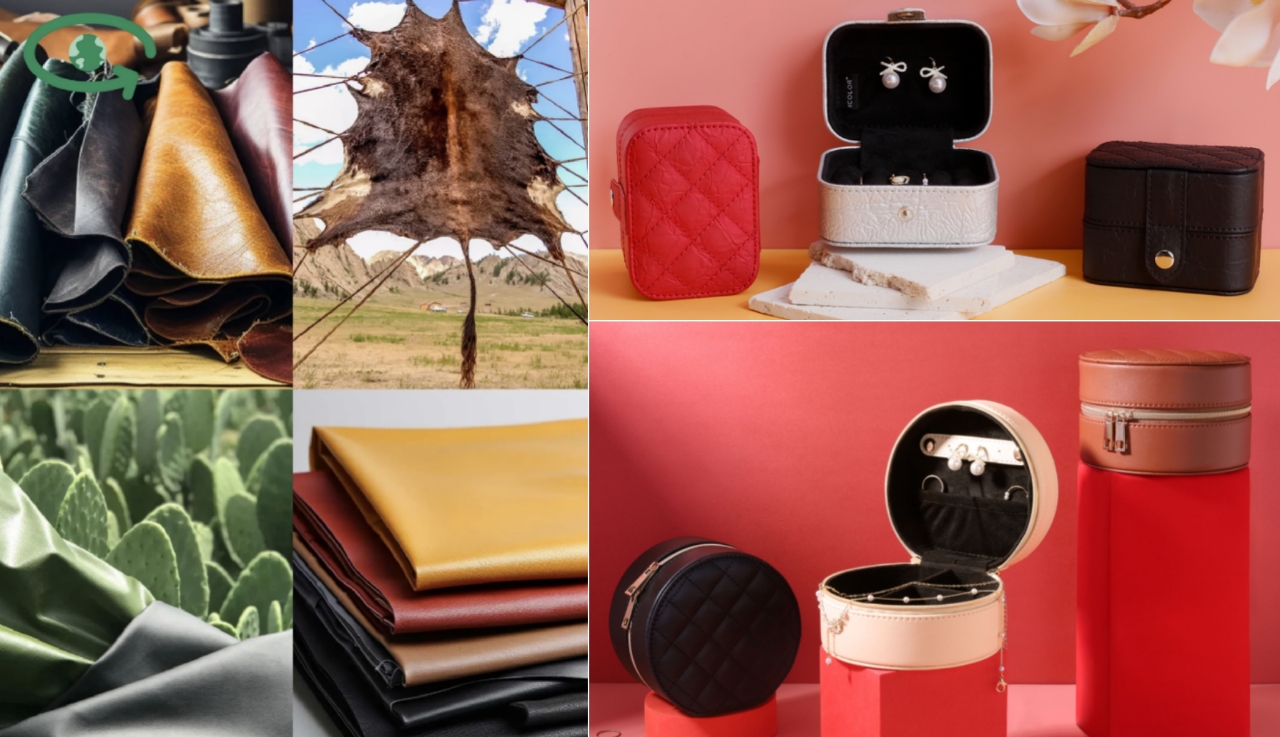Difference Between Fake Silk Sleep Mask and Vegan Silk Sleep Mask
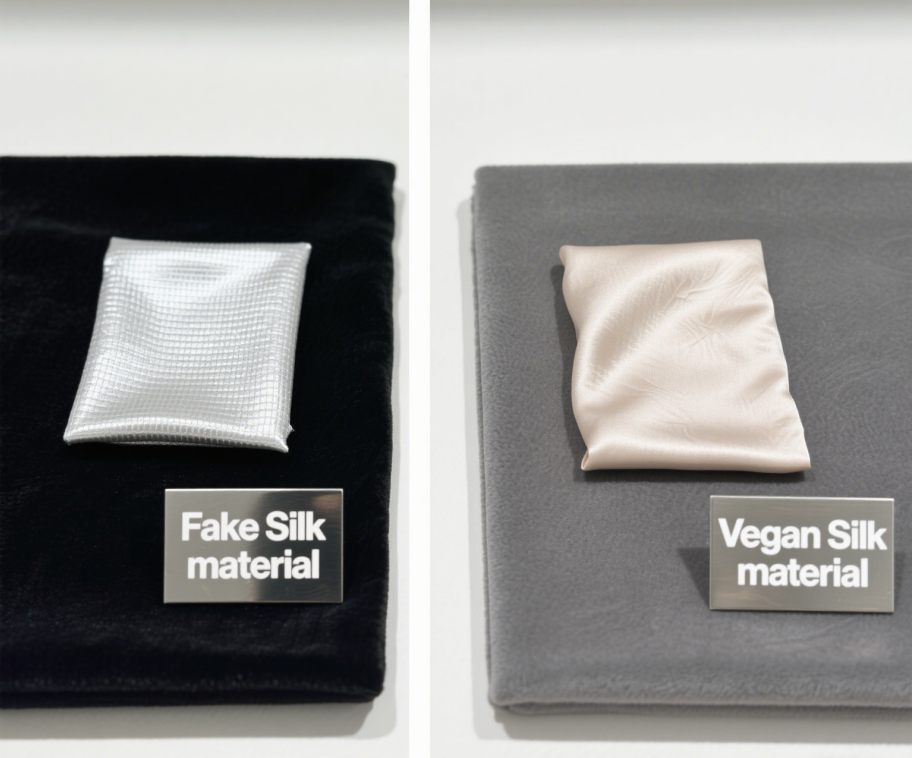
Welcome to the Rivta blog! Today, we’re diving into the world of sleep masks to uncover the key differences between fake silk and vegan silk options. As a premier manufacturer of eco-friendly accessories, Rivta is dedicated to empowering our clients—whether you’re a brand CEO, founder, Director of Product Development, or buyer—with the knowledge to make sustainable, informed choices. Sleep masks may seem like a small accessory, but their materials and production processes can have a big impact. Let’s explore what sets fake silk and vegan silk apart and why it matters for your brand and customers.
What is Fake Silk?
Fake silk,often labeled as synthetic silk, is a man-made material engineered to replicate the luxurious look and feel of natural silk. Typically crafted from polyester, nylon, or similar synthetic fibers, fake silk offers an affordable alternative to traditional silk. For brands seeking cost-effective options, it’s a tempting choice—but it’s not without its downsides.
The production of fake silk relies heavily on petroleum-based chemicals, a process that’s energy-intensive and far from eco-friendly. Once manufactured, these synthetic fibers don’t biodegrade, lingering in landfills for centuries. Worse yet, when washed, materials like polyester shed microplastics—tiny particles that pollute waterways and harm marine ecosystems. While fake silk might mimic silk’s sheen and softness, its environmental footprint tells a different story.
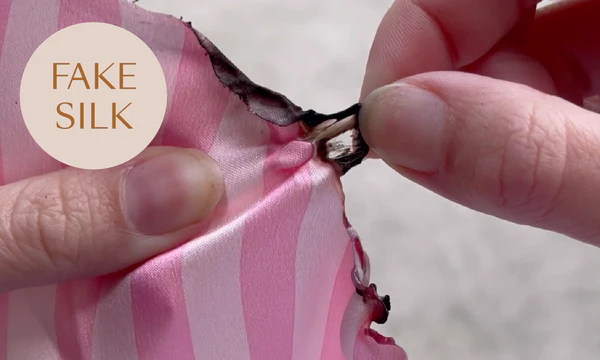
What is Vegan Silk?
In contrast, vegan silk represents a modern, ethical evolution in fabric technology. Unlike traditional silk, which involves silkworms and raises animal welfare concerns, vegan silk is cruelty-free.
It's typically made from plant-based materials such as bamboo, soy, or other natural fibers. These alternatives not only spare animals but also align with the growing demand for sustainable, eco-friendly products.
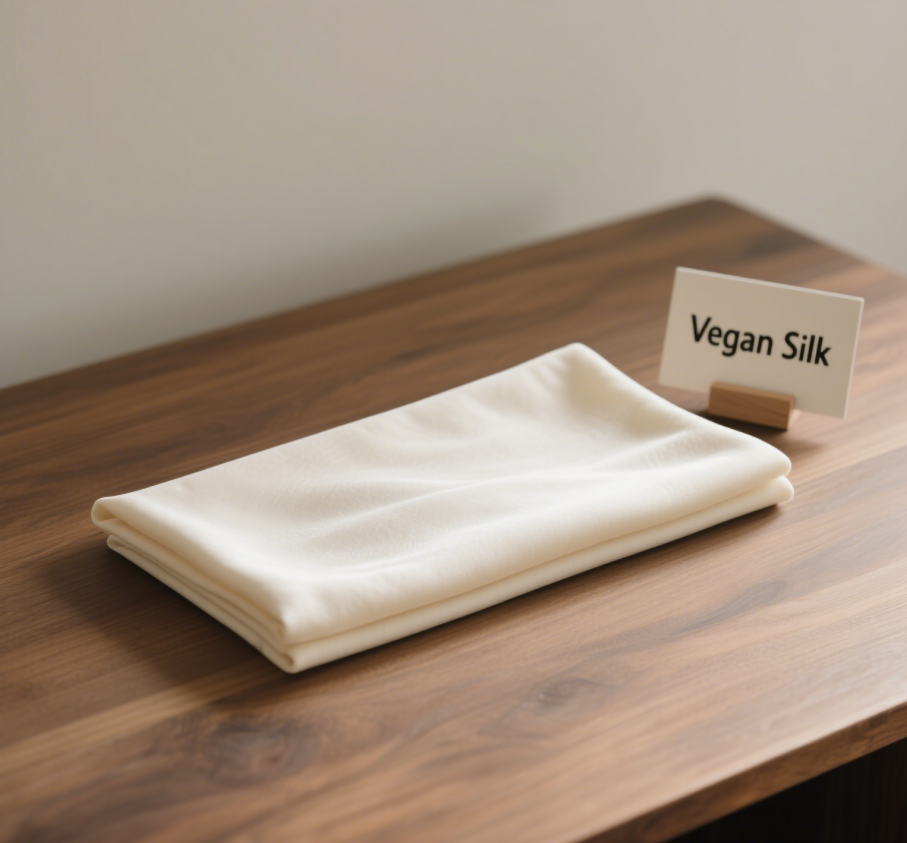
Vegan silk retains the silky-smooth texture that sleep mask wearers crave, while offering a host of advantages. It's renewable, biodegradable, and produced with fewer harmful chemicals than synthetic options.
For brands catering to eco-conscious consumers, vegan silk sleep masks are a standout choice—blending luxury with a clear conscience.
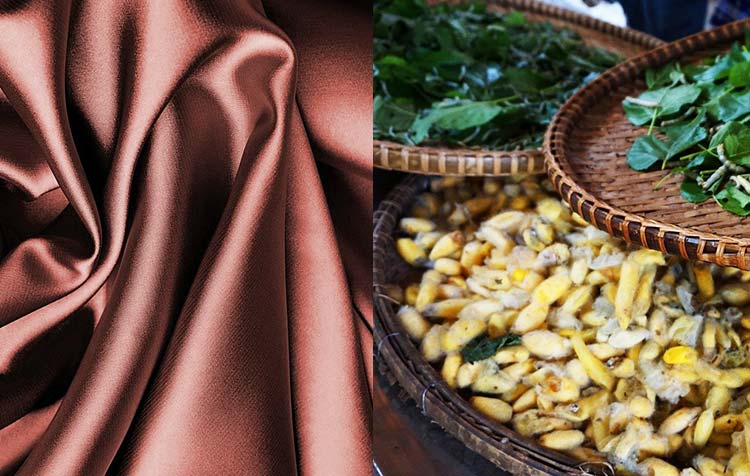
The Environmental Impact of Sleep Masks
Sustainability is no longer a buzzword—it's a business imperative. Even small products like sleep masks contribute to a brand's environmental footprint, depending on the materials and manufacturing processes involved.
The fashion and textile industry accounts for roughly 10% of global carbon emissions, according to a 2018 report by the United Nations Environment Programme. Choosing the right materials can make a measurable difference.

To illustrate, let’s compare the environmental profiles of common sleep mask materials:
| Material | Carbon Footprint | Water Usage | Biodegradability |
|---|---|---|---|
| Polyester | High | Low | No |
| Nylon | High | Low | No |
| Bamboo | Low | Medium | Yes |
| Soy | Low | Medium | Yes |
Synthetic materials like polyester and nylon rack up a high carbon footprint due to their petroleum-based origins, and their lack of biodegradability poses long-term waste challenges. Plant-based options like bamboo and soy, however, boast lower emissions and naturally decompose, making them ideal for eco-friendly product lines. For brands aiming to reduce their environmental impact, the choice is clear.
Benefits of Vegan Silk Sleep Masks
Why opt for vegan silk sleep masks? The benefits extend beyond ethics and sustainability—though those alone are compelling. Here’s what makes them a game-changer for your brand:
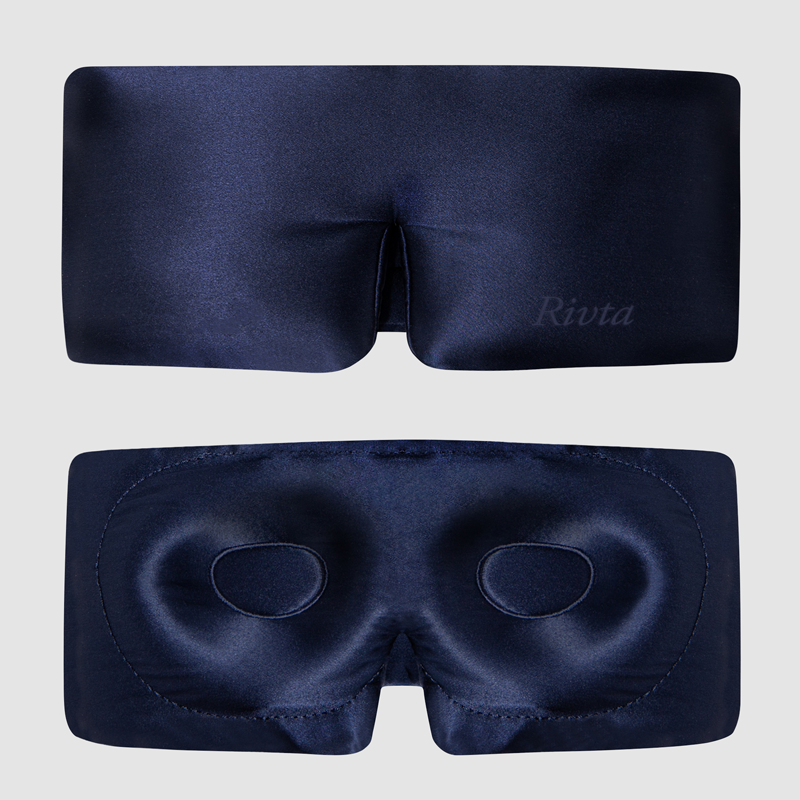
- Cruelty-Free Comfort: No animals are harmed in the production of vegan silk, appealing to consumers who prioritize ethical sourcing.
- Sustainable Luxury: Plant-based fibers are renewable and biodegradable, offering a guilt-free alternative to synthetics.
- Health Perks: The smooth texture of vegan silk reduces friction on delicate facial skin, minimizing irritation and wrinkles. Plus, its breathability helps regulate temperature for a cooler, more restful sleep.
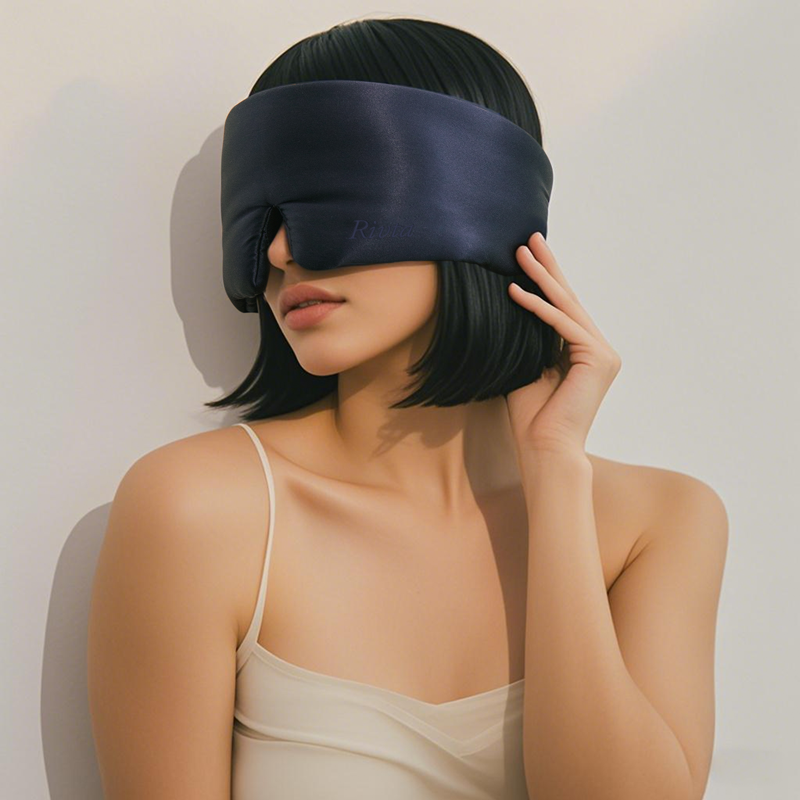
- Market Appeal: A 2022 NielsenIQ survey found that 75% of global consumers are willing to pay more for sustainable products. In the B2B space, this trend is amplified as brands face pressure to meet customer and stakeholder expectations for greener offerings.
Incorporating vegan silk sleep masks into your product line isn’t just a smart move—it’s a strategic one. It positions your brand as a leader in the booming eco-friendly market, where demand is surging among both retailers and end-users.
Rivta’s Commitment to Sustainability
Vegan Silk vs. Fake Silk: A Rivta Perspective
At Rivta, sustainability isn’t an afterthought—it’s the foundation of our business. As a trusted manufacturer of eco-friendly accessories, we specialize in crafting vegan silk sleep masks that combine luxury with responsibility. Our factory sources high-quality, plant-based materials like bamboo and soy, ensuring every product meets rigorous ethical and environmental standards.
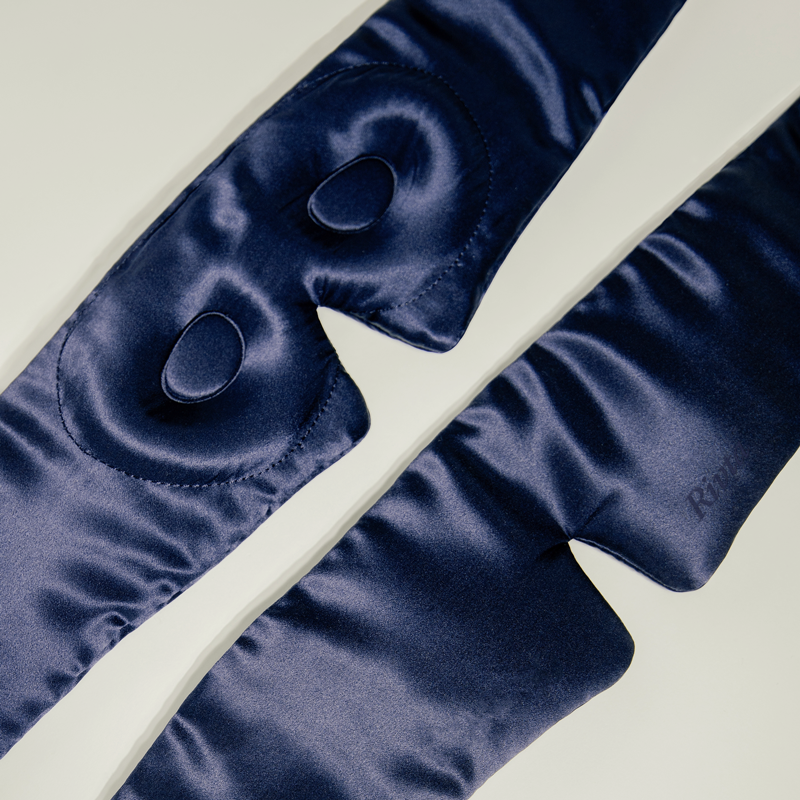
Bamboo Silk: Sustainable Grace
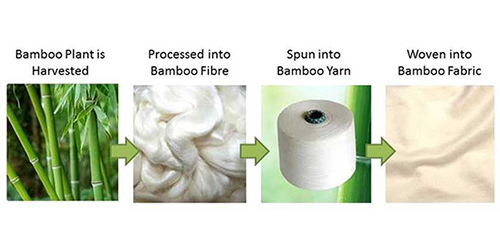
Bamboo silk, derived from bamboo fibers, is a rapidly renewable resource. Its production process is eco-friendly, requiring less water and energy compared to traditional silk.
- Price: Bamboo silk is moderately priced, sitting between budget-friendly synthetics and premium natural fibers. While slightly more expensive than fake silk, its environmental benefits and luxurious feel make it a cost-effective choice for brands targeting eco-conscious consumers.
- Environmental Impact: Bamboo silk is biodegradable and produced with minimal chemical use. Bamboo’s fast growth and low water requirements make it a sustainable choice, aligning with Rivta’s eco-friendly ethos.
- Fabric Feel: Bamboo silk offers a silky-smooth texture that’s gentle on the skin and naturally hypoallergenic. Its breathability ensures a cool, comfortable sleep experience, rivaling traditional silk.
Tencel Silk: The Eco-Conscious Choice
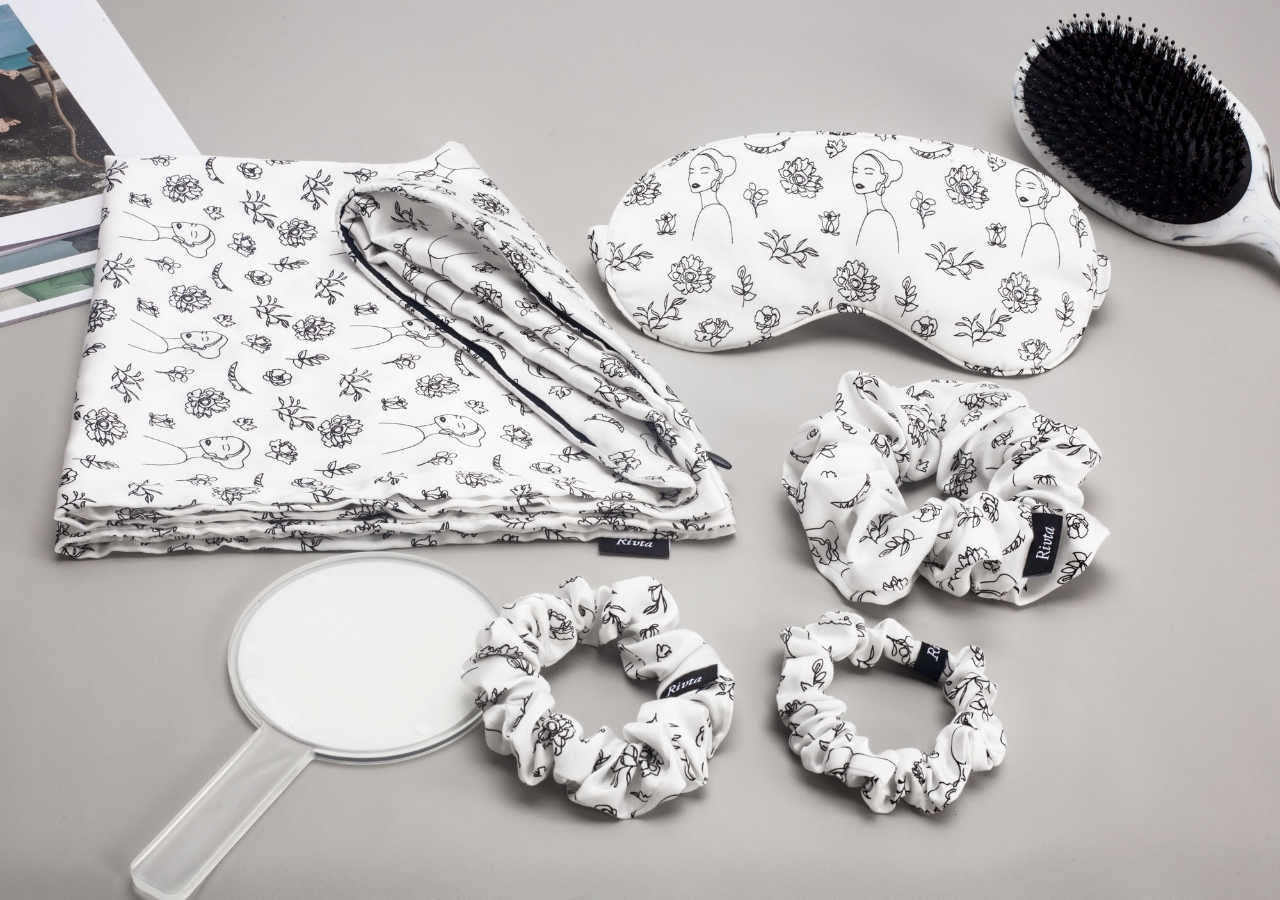
Tencel silk, made from lyocell fibers sourced from sustainably managed forests, is another cornerstone of our Vegan Silk collection. Its closed-loop production process minimizes waste and chemical use.
- Price: Tencel silk is a higher-end option, reflecting its advanced production process and superior quality. It’s pricier than both fake silk and bamboo silk but offers unmatched durability and eco-credentials, appealing to luxury brands.
- Environmental Impact: Tencel silk is produced using up to 50% less water and energy than conventional textiles. It’s fully biodegradable, and its closed-loop process recycles nearly all chemicals, ensuring minimal environmental harm.
- Fabric Feel: Tencel silk boasts a soft, breathable feel that rivals traditional silk. Its hypoallergenic and moisture-wicking properties make it ideal for sensitive skin and enhance comfort during sleep.
Fake Silk: The Budget Alternative
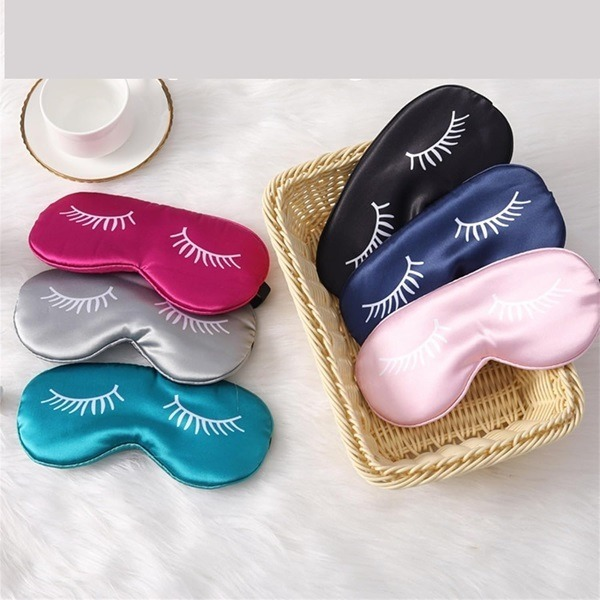
Fake silk, typically made from polyester, is a common synthetic material designed to mimic silk at a lower cost. While widely used, it falls short in key areas.
- Price: Fake silk is the most budget-friendly option, making it attractive for brands prioritizing cost over quality. Its low production costs translate to competitive wholesale pricing, but it lacks the premium appeal of vegan silk.
- Environmental Impact: Polyester production relies on non-renewable petroleum and contributes to high carbon emissions. It’s non-biodegradable and sheds microplastics during washing, polluting waterways.
- Fabric Feel: While some fake silk products feel smooth, they often lack the breathability and softness of vegan silk. Polyester can trap heat and may irritate sensitive skin, reducing its appeal for wellness-focused brands.
RPET Silk: Affordable Sustainability
For brands seeking a budget-friendly yet eco-conscious option, Rivta also offers RPET silk. Made from recycled plastic bottles, RPET silk reduces waste and promotes circularity.
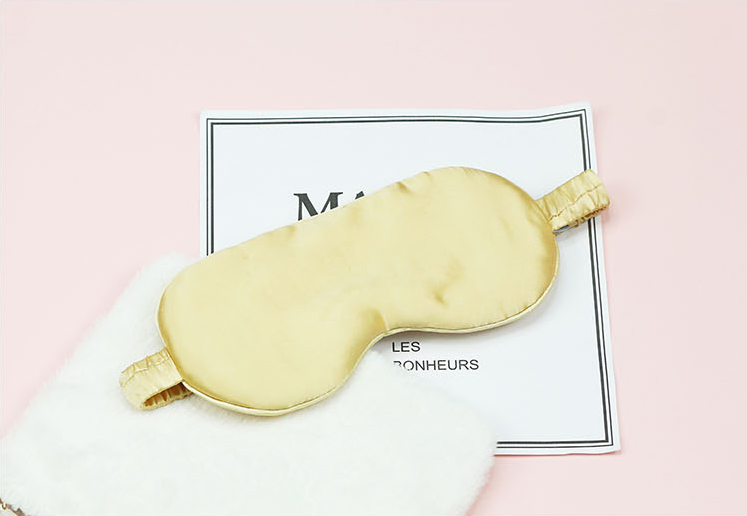
- Price: RPET silk is comparably priced to fake silk, offering an affordable solution for brands targeting mid-range markets. Its recycled nature adds marketability without significantly increasing costs.
- Environmental Impact: RPET silk reduces waste by repurposing plastic bottles, requiring less energy than virgin polyester production. However, it’s non-biodegradable, limiting its long-term sustainability compared to bamboo or Tencel silk.
- Fabric Feel: RPET silk achieves a smooth, silk-like texture but doesn’t match the breathability or skin-friendly properties of vegan silk. It’s a step up from traditional fake silk but falls short of vegan silk’s premium comfort.
Why Choose Rivta’s Vegan Silk?
Rivta’s bamboo and Tencel silk sleep masks are crafted in our state-of-the-art factory, designed to meet the needs of eco-conscious brands. Our custom wholesale solutions allow you to tailor designs to your brand’s vision, from material selection to packaging. We hold certifications from the Global Organic Textile Standard (GOTS) and Forest Stewardship Council (FSC), ensuring our products meet the highest ethical and environmental standards. By partnering with Rivta, you’re aligning with a manufacturer that delivers value to your supply chain and resonates with today’s eco-aware consumers.
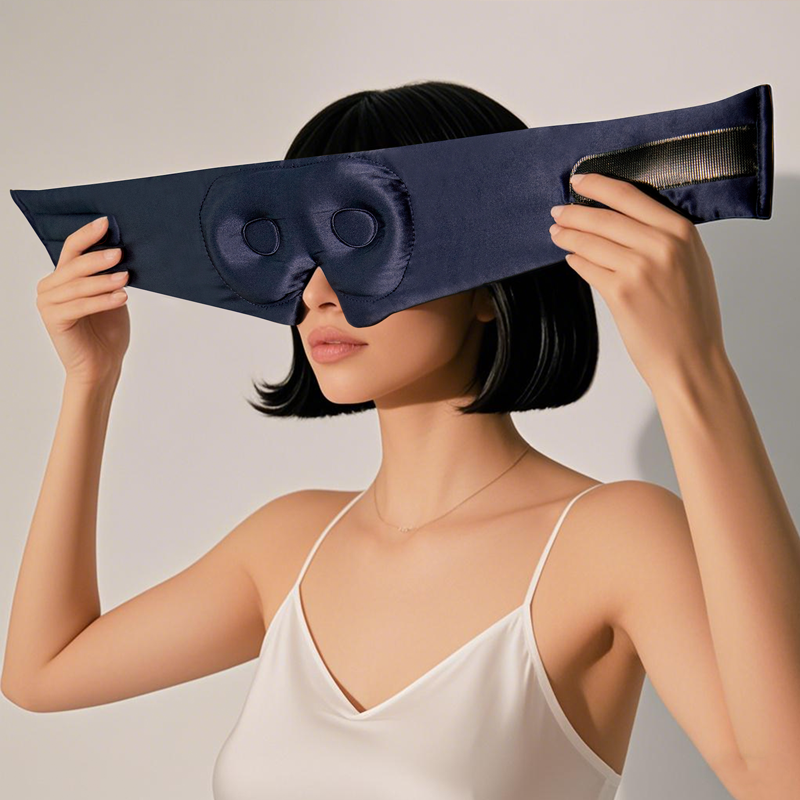
What sets Rivta apart? Our B2B expertise and dedication to customization. We offer custom wholesale solutions, allowing brands to design sleep masks that reflect their unique vision and values. Our state-of-the-art facility is staffed by skilled professionals who prioritize quality and sustainability at every step. From initial concept to final production, we partner with you to create accessories that resonate with eco-conscious buyers.
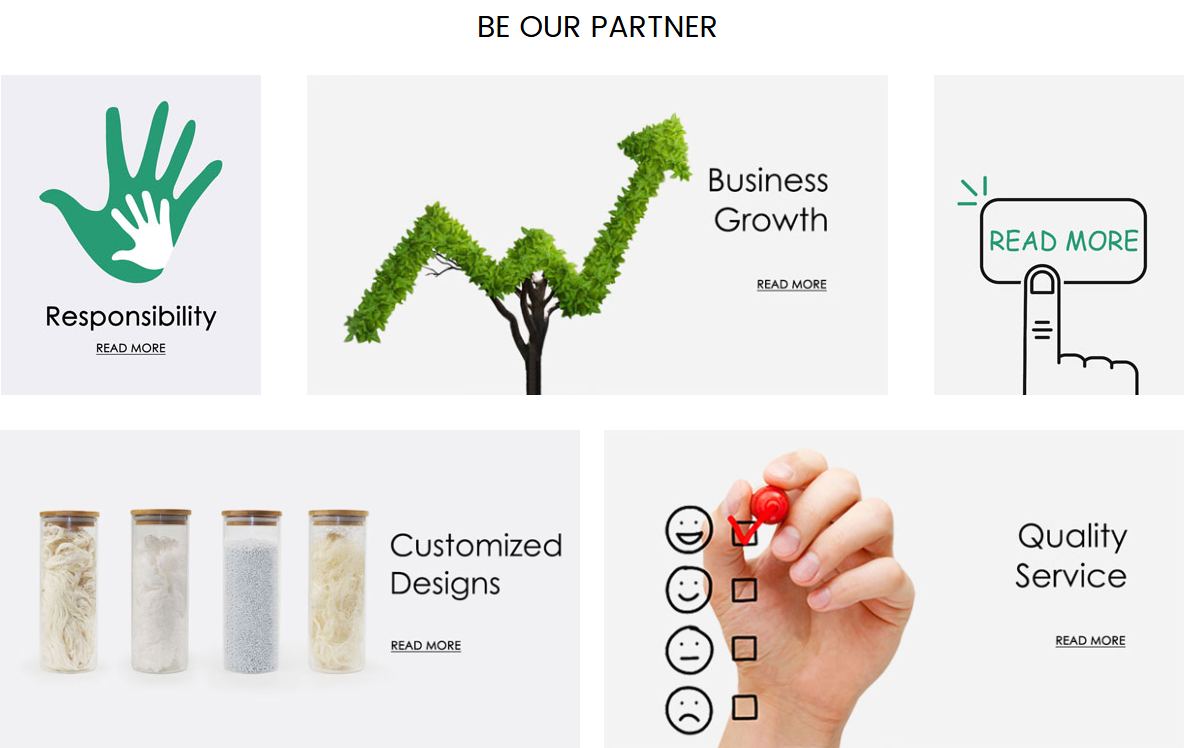
We’re proud to hold certifications from leading sustainability bodies, including the Global Organic Textile Standard (GOTS) and the Forest Stewardship Council (FSC). Beyond our products, we collaborate with local communities and NGOs to support environmental initiatives, reinforcing our commitment to a greener future. Choosing Rivta means aligning with a manufacturer that shares your passion for sustainability and delivers measurable value to your supply chain.
Conclusion
The difference between fake silk and vegan silk sleep masks boils down to more than just materials—it’s about values. Fake silk, with its synthetic roots and environmental drawbacks, may cut costs but compromises on sustainability. Vegan silk, crafted from renewable plant-based fibers, delivers the same luxury with a fraction of the ecological impact, making it the clear choice for forward-thinking brands.
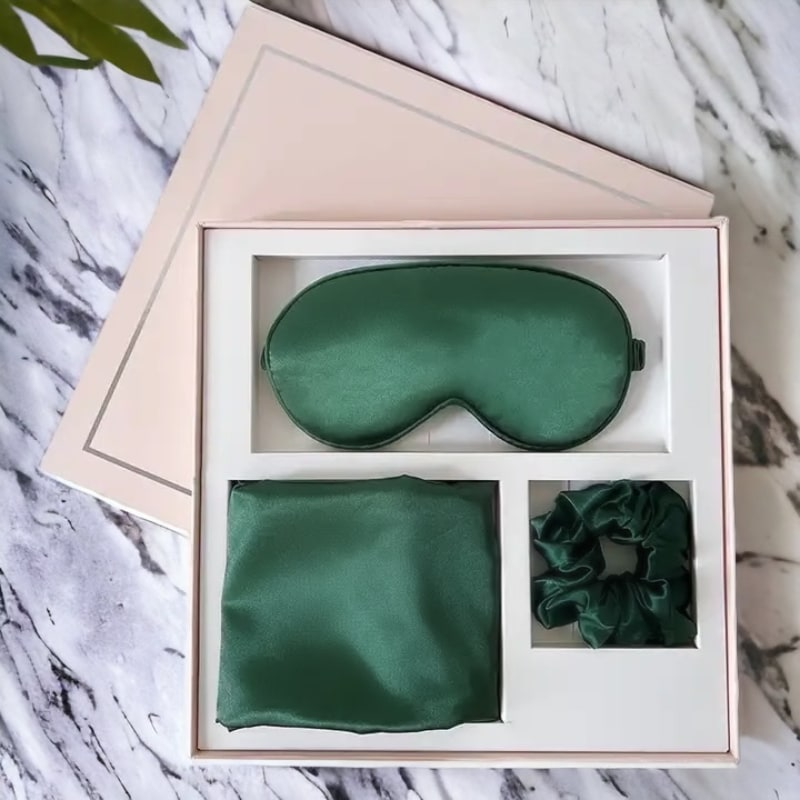
At Rivta, we’re here to help you bring that vision to life. Our vegan silk sleep masks are designed with your customers—and the planet—in mind, offering a perfect blend of comfort, ethics, and style. Ready to elevate your product line with eco-friendly accessories? Explore our custom wholesale options and let’s build something sustainable together.
Thank you for joining us on this journey into the world of sleep masks. We hope this Perception inspires you to make choices that benefit your brand, your customers, and the environment.
